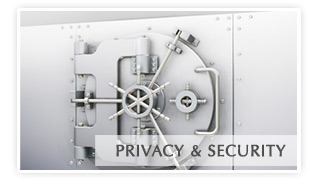
|
This page was printed from: https://www.farmbureaubank.com/Security/Fraud |
 Email and Online Fraud
Email and Online Fraud
Getting spam, or unsolicited emails, can be very annoying and costly. Learn what to be on the lookout for if you receive questionable offers and products in your inbox.
What is E-mail Fraud?
Phony email messages sent to you for the purpose of stealing personal and financial information are among the most common types of email fraud.
Disguised as legitimate email and claiming to be from sources you trust, these messages attempt to entice you to provide various types of personal and confidential information, including online IDs and passcodes, Social Security numbers and account numbers.
Also known as phishing or spoofing, the practice of email fraud is commonly used by criminals to gain access to your existing accounts or to use your personal and financial information to open new accounts.
Recognizing Email Fraud
Spotting phony email messages is not always easy, and the criminals who use them are becoming more sophisticated about creating them.
Phony email messages may ask you to reply directly or click on a link that takes you to a fraudulent Web site that appears legitimate. In either case, they will generally ask you to provide sensitive personal, financial or account information.
Here are some tips for spotting phony emails:
- Urgent appeals. Frequently, these emails claim that your account may be closed if you fail to confirm, verify or authenticate your personal information immediately.
- Requests for security information. Fraudulent emails often claim that the bank has lost important security information that needs to be updated. They also may request that the user visit and update this information online.
- Typos and other errors. Fraudulent emails or Web sites may contain typographical or grammatical errors. The writing may also be awkward, stilted or inappropriate. The visual or design quality may be poor.
Protecting yourself against E-mail or Online fraud
- Make sure the security features of your computer software, including your Web browser, are up-to-date. Software companies continuously provide security updates to their products.
To learn more about keeping your computer security current, get tips and information from Microsoft
or visit the National Cyber Security Alliance.
- Don't take anything for granted. Always keep in mind that forging emails and creating fraudulent Web sites is not difficult.
- Confirm the validity of all requests for sensitive personal, financial or account information, particularly if they are made with an urgent or threatening tone.
- Call the company directly to confirm requests for updating or verifying personal or account information.
- Confirm requests for personal or account information by going to the company Web site directly. Open a new browser window, type the Web address and check to see if you must actually perform any activity that an email may be asking you to do, such as change a passcode.
- Do not share your IDs or passcodes with anyone. Choose passcodes that are difficult for others to guess and use a different passcode for each of your online accounts. Use both letters and numbers and a combination of lowercase and capital letters if the passcodes or personal identification numbers (PINs) are case sensitive. Change your passcode often.
- If you think you may have provided personal or account information in response to a fraudulent email or Web site, report the fraud immediately, change your passcodes and monitor your account activity frequently.
- Always sign off Web sites or secure areas of Web sites (for example, Online Banking) for which you use an ID and passcode to enter.
- When your computer is not in use, shut it down or disconnect it from the Internet.
- Be careful and selective before providing your email address to a questionable Web site. Sharing your email address makes you more likely to receive fraudulent emails.
- Review your monthly credit card and bank account statements thoroughly. Investigate suspicious items immediately to head off any possible fraud before it occurs.
Protecting against online viruses
In addition to protecting yourself against email and online fraud, you should also be aware of the danger of online viruses to damage or compromise the security of your computer.
- Anti-virus protection. If your computer becomes infected with a virus, you could possibly lose information and incur repair expenses. Make sure your computer has an anti-virus protection program installed to reduce the risk of your computer becoming infected.
- Automatic upgrades. We recommend that you purchase a program that automatically upgrades your virus protection on a recurring basis. If you do not have this automatic upgrade feature, make sure you update your virus detection program weekly and when you hear of a new virus.
- Attachments. We advise you not to open attachments or diskettes unless you are certain that you can trust the source. Learn how to manually screen diskettes and attachments if your anti-virus software does not automatically screen for viruses.
- Contact your ISP. Your Internet Service Provider (ISP) may have additional recommendations and technical support for protecting yourself against online viruses, email fraud and spam. We suggest that you contact your ISP for recommendations specific to your computer and network.